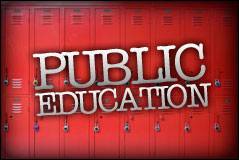Media
Public School Failures Leave Graduates Unemployable
 William Marsh would like to hire a couple of good workers for his steel bar manufacturing company in Warminster, Pa. But he has a problem: He can’t find good workers to join his team of about 10 employees. The high school graduates who ought to qualify, he says, are “almost totally unable” to do the basic math and reading his business requires:
William Marsh would like to hire a couple of good workers for his steel bar manufacturing company in Warminster, Pa. But he has a problem: He can’t find good workers to join his team of about 10 employees. The high school graduates who ought to qualify, he says, are “almost totally unable” to do the basic math and reading his business requires:
(We) give applicants a math test, that includes adding, subtracting, multiplication, division and word problems. It is unusual for an applicant to score 50 percent.
It is remarkable when an applicant is able to perform mathematic operations on fractions. As an example, we ask, “What is the decimal equivalent of one-half?” It is not that the applicant does not know the answer (which he does not), it is that he does not understand the question. Similar examples could be given for reading comprehension.
Mr. Marsh isn’t just a voice crying in the wilderness: He is one of many manufacturers and business owners in Pennsylvania —and America—suffering from an under-performing educational system. Reporting on the shortage of skilled workers even for small businesses, The Wall Street Journal described one owner whose business installs security alarms and video surveillance. He began giving applicants with no skills a basic alarm manual, and asked them to return when they could operate his alarm panel. None came back.
Beyond business owners, Americans in general recognize public education is struggling. Earlier this month, in a national Gallup poll, Americans ranked public schools fifth—and last—in quality of education, after independent private, parochial/religious, charter and home schools. That translated to only 37 percent of respondents ranking their school as good or excellent. A Rasmussen poll found only 23 percent gave public schools those top ratings.
Marsh says manufacturers can’t wait around while public education in Pennsylvania falters—the future of their workforce depends on school reform. “When we look at constraints to our growth, high on the list is education,” he said.
Expanding school choice, as happened with Pennsylvania’s new opportunity scholarship program, will help get students a better education before they reach employers like Marsh. He should be able to focus on building his business, not worrying if he can find a worker who knows arithmetic.